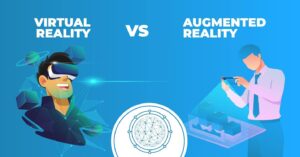Computing Through the Ages: A Century of Evolution
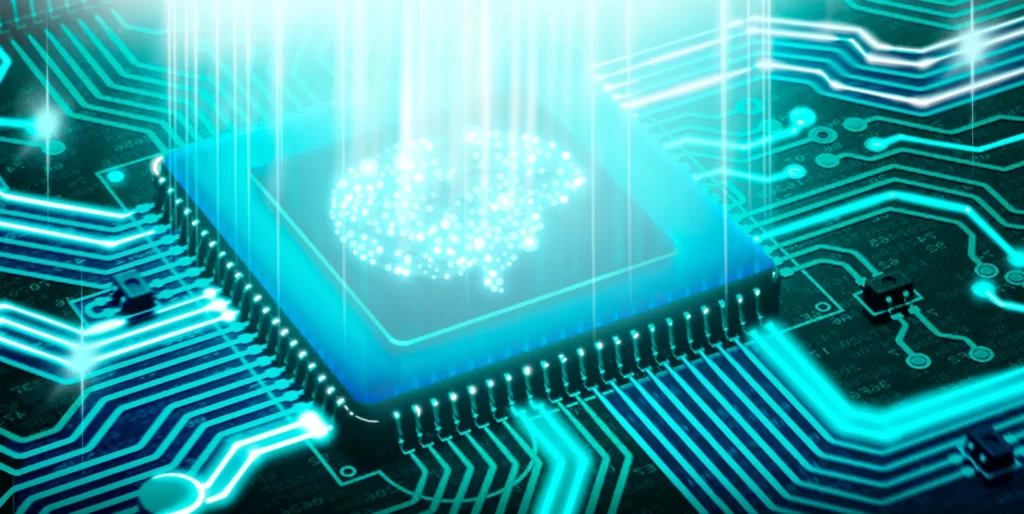
Introduction:
The chronicle of computers is an extraordinary odyssey that has extended over numerous decades, observing exponential progressions and transformative breakthroughs. Commencing from the modest origins of mechanical calculators to the state-of-the-art supercomputers of contemporary times, the evolution of computers has been a demonstration of human resourcefulness and innovation. This article delineates the captivating progression of computers from their inception to the present, showcasing the incredible technological leaps that have molded our modern world.
The Journey :
1. The Birth of Mechanical Calculators: During the commencement of the 17th century, the groundwork for computing was established through the creation of mechanical calculators such as Blaise Pascal’s Pascaline and Wilhelm Schickard’s calculating clock. These apparatuses were capable of executing fundamental arithmetic operations, thereby facilitating the progression of more intricate machines.

2. The Emergence of Analytical Engines: During the mid-19th century, Charles Babbage’s visionary work conceptualized the first programmable computer, known as the Analytical Engine. Although not fully realized during his lifetime, Babbage’s ideas laid the foundation for the principles of computation, introducing concepts such as instructions, memory, and loops.

3. Early Electronic Computers and ENIAC: The 1940s marked a significant turning point with the development of electronic computers. The world’s first general-purpose digital computer, the ENIAC (Electronic Numerical Integrator and Computer), was completed in 1945. Despite its massive size and limited programmability, the ENIAC displayed the potential of electronic computing.
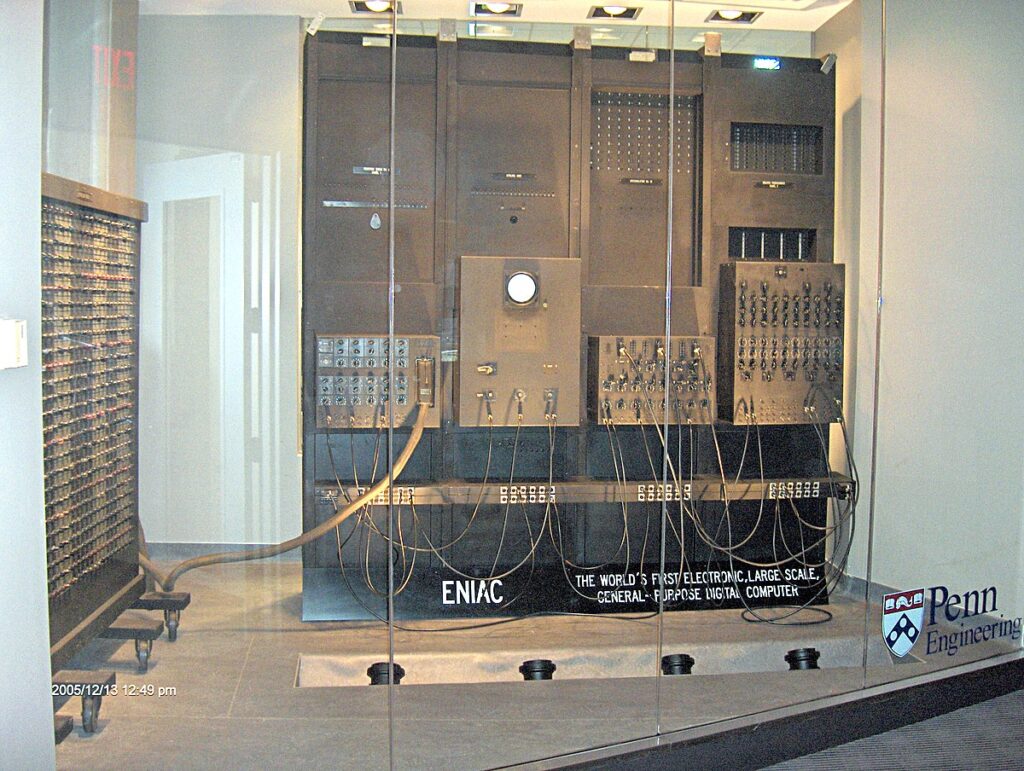
4. The Advent of Transistors and Mainframes: The invention of transistors in the late 1940s revolutionized computing by enabling smaller, more reliable, and energy-efficient electronic components. This era also witnessed the rise of mainframe computers, which were large, powerful machines utilized for data processing in government and corporate settings.
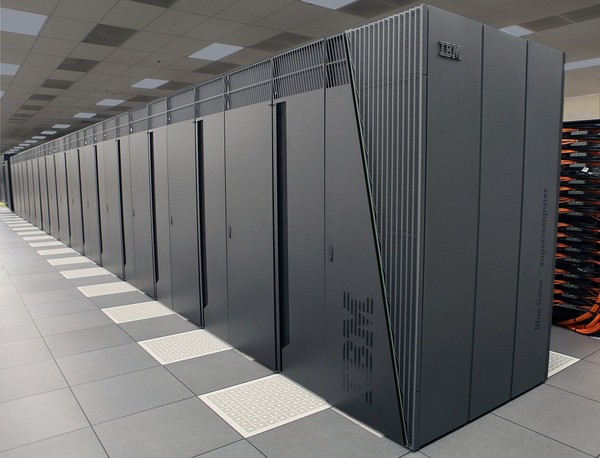
5. Microprocessors and Personal Computers: The advent of microprocessors in the 1970s marked a significant milestone in the history of computing. These integrated circuits contained the essential components of a computer’s central processing unit (CPU) on a single chip, paving the way for the development of personal computers (PCs). As a result, computing became accessible to individuals and small businesses, with companies such as Apple and IBM playing pivotal roles in popularizing PCs.
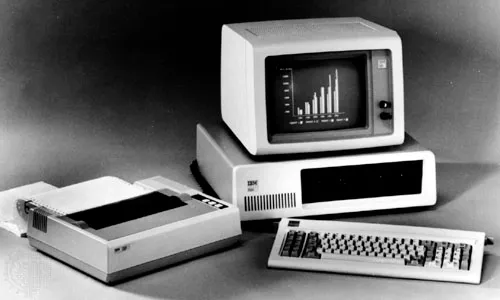
6. The Internet Age and Beyond: The late 20th century witnessed the emergence of the internet, a transformative technology that interconnected computers globally, ushering in the information age. The 1990s saw the rise of the World Wide Web, which made information and communication more accessible than ever before. Simultaneously, advancements in hardware and software led to increased processing power, storage capacity, and graphical capabilities.
Today, we find ourselves on the cusp of the fourth industrial revolution, characterized by cutting-edge technologies such as artificial intelligence, quantum computing, and the Internet of Things (IoT). These innovations hold the potential to redefine the very nature of computing, opening doors to unparalleled possibilities in fields such as medicine, transportation, and entertainment.

Conclusion: The progression of computers has been a remarkable journey of innovation, where each significant achievement has been built upon the triumphs of the preceding era. The evolution of computers, from mechanical calculators to quantum computers, has had a profound impact on the course of human history. As we persist in exploring the limits of what is achievable, the forthcoming phase of computer evolution holds the potential for even more astounding advancements, propelling us into an era of boundless technological potential.
Advantages of the Evolution of Computer :
The progression of computers has yielded a multitude of benefits that have significantly impacted various facets of our lives and society. The following are key advantages resulting from the evolution of computer technology:
1. Augmented Processing Power: The advancement of computers has resulted in a substantial increase in processing power, allowing for faster and more intricate calculations, simulations, and data analysis. This has led to progressions in fields such as scientific research, engineering, and financial modeling.
2. Improved Storage Capacity: The development of storage technology has enabled computers to store vast quantities of data, ranging from documents and images to videos and extensive datasets. This has facilitated superior record-keeping, data analysis, and archival of information.
3. Global Connectivity: The internet, a byproduct of computer evolution, has transformed communication and information sharing on a global scale. It has brought individuals, businesses, and cultures closer together, allowing for instantaneous communication, online collaboration, and access to a wealth of knowledge.
4. Automation and Efficiency: The advent of computers has enabled the automation of tasks that were once labor-intensive and time-consuming. This has resulted in increased efficiency across various industries, streamlining processes and reducing the likelihood of human error.
5. Advancements in Science and Medicine: The computational power of computers has played a pivotal role in scientific research, enabling complex simulations, data analysis, and modeling in fields such as physics, chemistry, and biology. In the realm of medicine, computer technology has facilitated medical imaging, drug discovery, and patient management.
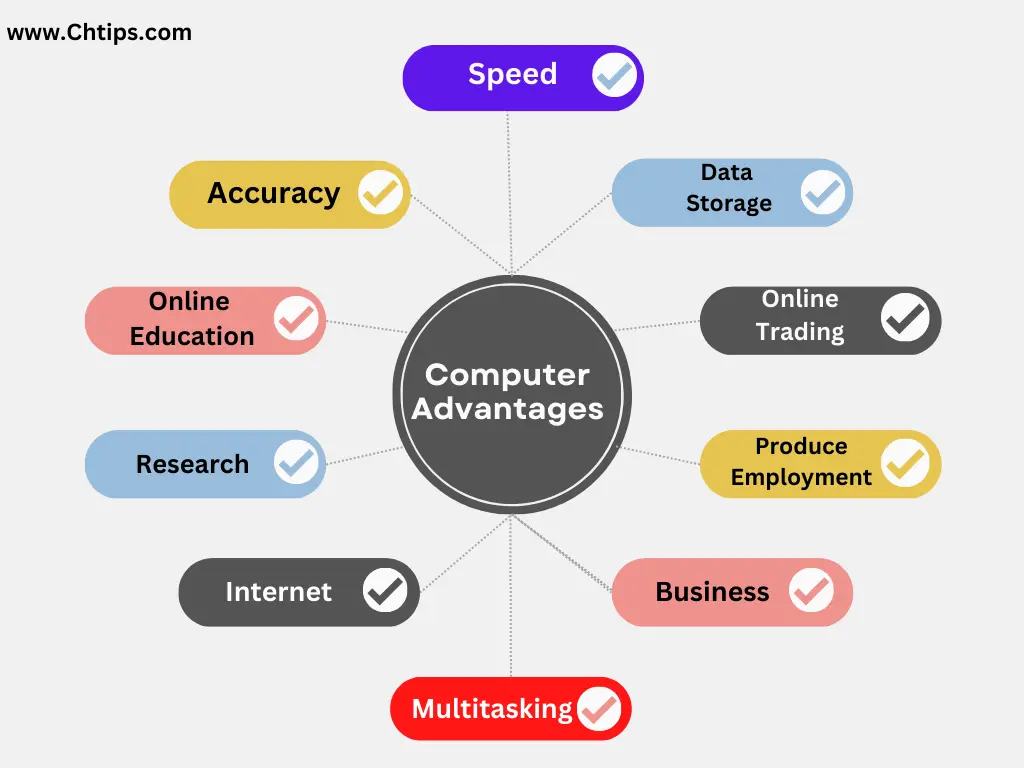
6. Innovation and Creativity: The evolution of computer technology has opened up new avenues for innovation and creativity. Industries such as entertainment, design, and art have harnessed computer tools to create visually stunning experiences, immersive environments, and innovative products.
7. Access to Information: The internet and computers have democratized access to information, making knowledge available to a wider audience. Online education, e-learning platforms, and digital libraries have made learning and research more accessible to individuals across the globe.
8. The Advancement of Economic Growth: The progression of computers has been a driving force behind economic growth, as it has created new industries, job opportunities, and markets. The technology sector, encompassing hardware, software, and services, has emerged as a significant contributor to economic activity.
9. Enhancement of Personal Productivity: Personal computers and mobile devices have empowered individuals to manage tasks, communicate, and organize their lives more efficiently. Productivity software, email, and digital calendars have become integral components of modern daily life.
10. Facilitation of Scientific and Technological Breakthroughs: Computers have played a pivotal role in enabling breakthroughs in fields such as artificial intelligence, machine learning, and quantum computing. These advancements have the potential to reshape industries and solve complex problems.
11. Mitigation of Environmental Impact: The evolution of computers has led to the development of energy-efficient designs and technologies, contributing to reduced energy consumption and environmental impact. Additionally, computer simulations are utilized in environmental research to model climate patterns and predict ecological changes.
12. Advancements in Healthcare and Biotechnology: The evolution of computers has facilitated advancements in healthcare and biotechnology, including DNA sequencing, personalized medicine, and medical diagnostics. Computers have enabled the analysis of large datasets to uncover insights about diseases and treatments.
In conclusion, the evolution of computers has brought about a plethora of advantages that have transformed how we work, communicate, learn, and innovate. These advancements continue to shape our world and hold the potential to address complex challenges and create a brighter future.
Disadvantages of the Evolution of Computer :
The evolution of computers has brought about a multitude of advantages, but it has also introduced certain disadvantages and challenges. The following are key disadvantages of computer technology:
1. Privacy and Security Concerns: The integration of computers and the internet into daily life has raised concerns about data privacy and cybersecurity. Unauthorized access to personal information, identity theft, and hacking have become significant issues, prompting questions about the safety of digital interactions.
2. Digital Divide: Despite the increasing accessibility of computer technology, a digital divide persists between those who have access to advanced technology and those who do not. This divide can exacerbate social and economic inequalities, limiting opportunities for those without access to computers and the internet.
3. Job Displacement and Automation: The advancement of computers and artificial intelligence has led to concerns about job displacement, as automation and AI-powered systems are capable of performing tasks previously done by humans. This can result in unemployment and shifts in the job market, necessitating new skills and retraining.
4. Environmental Impact: The production, use, and disposal of electronic devices contribute to electronic waste (e-waste) and environmental degradation. The extraction of rare minerals for electronics and the energy consumption of data centers can have negative ecological consequences.
5. Health Concerns: The prolonged use of computers and digital devices has been linked to various health issues, including eyestrain, musculoskeletal problems, and sleep disruption due to blue light emission and increased screen time.
6. Information Overload and Misinformation: The abundance of information available on the internet has resulted in information overload, making it difficult to distinguish accurate and reliable sources from misleading or false information. This can have an adverse impact on decision-making and critical thinking.
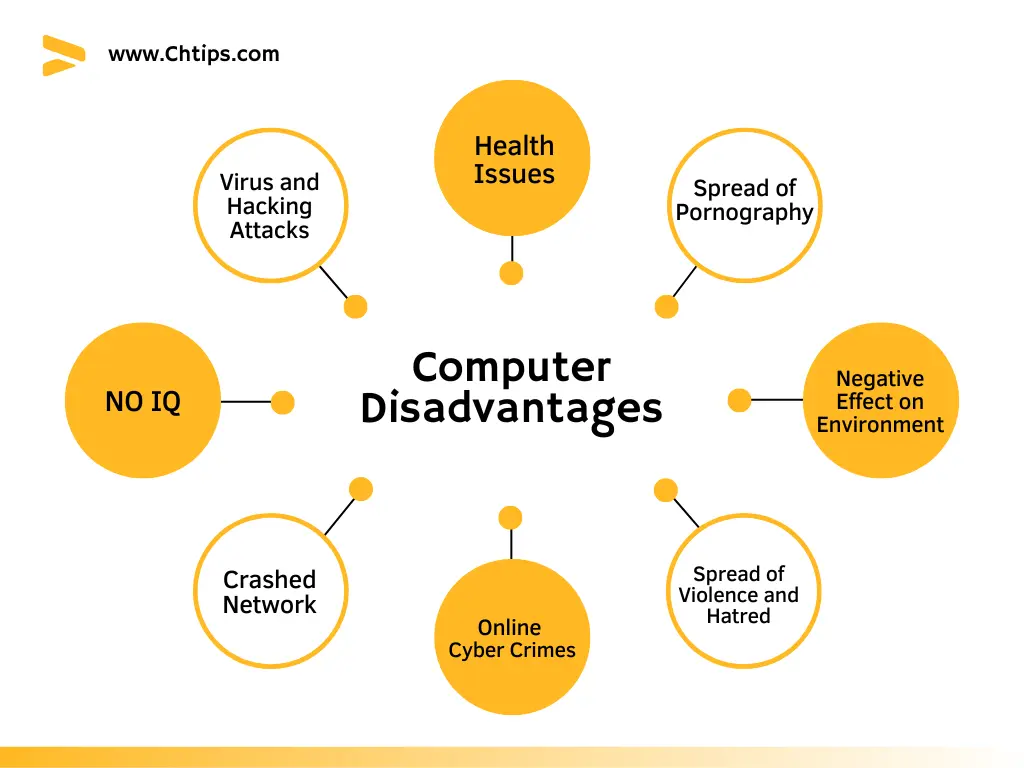
7. Social Isolation and Digital Addiction: The prevalence of online interactions and social media can lead to social isolation and reduced face-to-face interactions. Furthermore, excessive use of computers and digital devices can contribute to digital addiction and negatively impact mental health.
8. Loss of Personal Connection: While digital communication offers convenience, it may lack the emotional depth and personal connection of in-person interactions. The art of meaningful communication and interpersonal relationships may be diminished in a digitally driven world.
9. Vulnerability to Cyberattacks: The evolution of computer technology has led to increasingly sophisticated cyberattacks, including ransomware, data breaches, and phishing scams. These attacks can compromise sensitive information and disrupt critical systems.
10. Dependence and Reliability: Society’s growing reliance on computers and technology has raised concerns about the consequences of system failures or widespread outages. Over-dependence on technology can lead to vulnerabilities if systems are not adequately maintained or protected.
11. Ethical and Moral Dilemmas: The development of computers has raised complex ethical questions related to AI ethics, data privacy, and algorithmic bias. Decisions made by computer algorithms can have far-reaching social and ethical implications.
12. Environmental Footprint: The energy consumption of data centers and the production of electronic devices contribute to carbon emissions and resource depletion. The rapid pace of technological advancement can contribute to a throwaway culture, leading to environmental challenges.
Conclusion :
In conclusion, while the evolution of computer technology has brought about significant progress and benefits, it is crucial to address the disadvantages and challenges that accompany these advancements. Striking a balance between technological innovation and the well-being of individuals, society, and the environment is essential to maximize the positive impact of computers while mitigating potential drawbacks.

